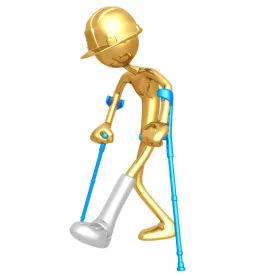We have all shared this experience. Jury selection is at 9:00 a.m. on Monday. It is now Sunday night and the national trial team—led by an attorney from out of town—is convening to discuss voir dire and jury selection. A jury consultant is present, meeting local counsel for the first time. Time is precious, and the implicit assumption is that the local attorney will be able to answer all questions about the mechanics of the process, so the trial team can concentrate on crucial strategic decisions.
However, local counsel frequently does not come pre-equipped with knowledge of the judge’s current preferences for the specific case at hand. Further, many strategic voir dire steps require an exercise of judicial discretion and need to be resolved long before the eve of jury selection. For this reason, we are providing preliminary questions (many of which will seem obvious) that should be addressed and answered in advance by jury consultants and local counsel to reduce uncertainty and channel trial counsels’ time more effectively and efficiently.
Key Questions to Ask When Preparing for Voir Dire
1. Will the judge allow a jury questionnaire?
If not, consider filing a motion to request the use of a questionnaire. Prior to doing so, find out if the questionnaire’s length is limited and if the judge prefers a particular format. You should also develop a strategy for negotiating the form and content with the opposition so the judge understands that the process will not impose a burden on their time.
2. Which voir dire questions, if any, will be asked by the judge?
Find out if there is a set of questions the judge always asks. If so, identify which questions will help your side identify jurors for strikes.
3. Does the judge allow the parties to submit questions for voir dire?
If the answer is yes, does the judge typically ask the questions in the order submitted? Do they add follow-up questions, e.g., asking potential jurors who have experience with a product if the experience was positive or negative?
4. Does the judge allow attorneys to ask questions?
If attorneys are allowed to ask questions during voir dire, are there any topics—such as religion or political party affiliation—that are off limits?
5. Whether asked by attorneys or the judge, will questions need to be submitted prior to voir dire?
If voir dire questions must be submitted in advance, how soon?
6. How much time, if any, will the judge allot to themselves and each side for voir dire?
Additionally, does the ordering and prioritizing of questions anticipate these time constraints?
7. Will the judge provide a juror seating chart?
If so, ask if the seating will be assigned consecutively by juror number, so that the first 24 people will be assigned numbers 1-24, or if seating is assigned in random order.
Furthermore, we recommend inquiring whether the judge will allow one or both parties to furnish numbered paddles for the jurors to identify themselves and make it easier for the parties to record answers or non-answers to voir dire questions. (This is especially helpful and efficient when voir dire is extremely time-limited and resembles something more like a “lightning round.”)
8. Will the judge or clerk simply pull the next consecutive prospective juror, or will the prospective juror be randomly selected?
Ask if the court is willing to give counsel the random and alphabetical list of potential jurors.
9. What is the judge’s recent track record regarding hardship strikes for long, complex trials?
It is good to know if the judge or a clerk will pre-screen jurors for hardship. When will such screenings take place? Will the parties be notified and invited to observe?
Find out if the judge typically endeavors to rehabilitate potential cause strikes with directive questions (for example, “Would you set that experience aside and follow my instructions?”) or if they are likely to allow the parties more latitude in establishing bias. Are they more open to some types of hardship excuses than to others, e.g., responsibility for an elderly parent vs. economic hardships imposed on a sole proprietor? And finally, when will the judge address hardship excuses and/or cause strikes—before or after voir dire?
10. What are the rules of the game and the judge’s norms for the exercise of peremptory challenges?
Will the parties submit their peremptory strikes simultaneously—so that one juror could potentially be struck by two parties—or will peremptory challenges be issued on an alternating basis? Does the judge allow back strikes? How many peremptory challenges will the judge allow each side?
If there are multiple defendants, will the judge increase the number of strikes? If so, how will the number of strikes be allocated between plaintiffs and defendants? What about among co-defendants?
11. How much time will the judge allow the parties to make their peremptory strikes?
Prior to voir dire, raise the question of whether this time frame for peremptory strikes can be determined in advance.
12. How many jurors will the judge sit in the jury box?
In addition to the number of seated jurors, inquire if alternate jurors will be chosen. If so, find out how many peremptory strikes the parties will get for alternatives. Will these alternate jurors be permitted to deliberate at the end of the trial?
13. Will the judge allow a consultant to sit at the counsel table?
If the judge does allow it, submit a motion in limine or enter into an agreement with opposing counsel that neither side will comment on the presence of a consultant. Even if the motion is denied, it is better to know ahead of time that such a comment is fair game.




 />i
/>i

